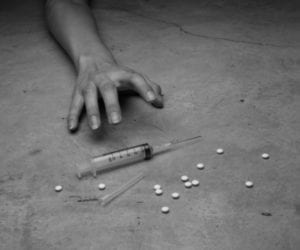Four Steps To Take When A Loved One Relapses

It’s your worst nightmare, the word “relapse.” It conjures up so many thoughts, feelings and fears. Your loved one was doing so well with his recovery from addiction until he made that one bad decision. He woke up on the floor and had no recollection of the last few weeks. His mind struggled to remember and then it hit him like a ton of bricks. He had relapsed and lost all his hard-won work to recover from addiction.
He was confused and felt like he was being pulled in every direction. He was craving another drink, another hit, but he knew he shouldn’t give in to those feelings. He didn’t want to go back to the way things were in the past, when he was a helpless victim of addiction. He wanted to continue in his sobriety and healing. So he did the right thing and called on you for help. What would you be able to do to help him before he weakened and gave in to those cravings again? How could you help him get back on track before it was too late?
Starting again is not always so easy, but it can be done. Many addicts have recovered from relapse and remained clean for the rest of their life. Your loved one’s life is worth the hard work it will take to get him back on track. The first few weeks of recovery will be the hardest for your loved one. He will need all the help and support he can get. The plan of recovery should be determined on how far your loved one regressed in his relapse. Once the damage has been assessed, a plan of treatment can be devised to bring him out of the danger zone. Here are four steps to take when your loved one has relapsed:
- You can begin treatment by enrolling your loved one in a rehab center. Getting him into a treatment program immediately is very important. Your loved one has to make a commitment to get and stay sober. He should not want to enter rehab just to appease other people and make them happy. He must truly want to get and remain sober otherwise he will most likely relapse again. Getting physical treatment will not be enough to keep your loved one sober for the long-term. He will need psychological and behavioral therapy to undo his negative thought and behavior patterns. He will learn how to process healthy thoughts and behaviors that will help him break the cycle of substance abuse and lead a normal, happy life.
- Your loved one will need a lot of encouragement and support from you and others. He will meet other recovering addicts during group therapy sessions at the rehab center. Together they will be able to encourage and support each other, give some advice that worked for them and enjoy socializing with each other. Family counseling will also bring you and other family members closer to your loved one and equip you with the right tools to assist him in his recovery. Family members who still harbor negative feelings toward your loved one should not be included. Practicing his faith in God will bring tremendous support and encouragement to your loved one, especially when he is alone at night.
- Your loved one will feel the effects of withdrawal for a while after he has gone through the detox process. If he is having difficulty, perhaps the physician on staff can help with medication to ease the problem. Managing the side effects of withdrawal is necessary and important because withdrawal will leave your loved one feeling vulnerable and sensitive. He may also be struggling with feelings of shame, anger, resentment, guilt, sadness and more. Psychological counseling will help your loved one address these issues and find solutions. Remember that your loved one will be struggling to cope with many things in the first few months of recovery.
- Write down a relapse prevention recovery plan and read it daily. Your loved one can post it where he will see it. Maintaining sobriety is a lifetime goal that can best be achieved by having a daily reminder handy. The plan should include how to best avoid or handle tough situations and people, so that your loved one will know ahead of time what to do. Attending aftercare counseling and support group meetings is also essential to stay on the right track.
Some days will be easier than others but your loved one will be able to maintain sobriety if he follows the rules. Your love, encouragement and support are the best gifts you can give him to begin a new life.
If you or a loved one needs help with abuse and/or treatment, please call the WhiteSands Treatment at (877) 855-3470. Our addiction specialists can assess your recovery needs and help you get the addiction treatment that provides the best chance for your long-term recovery.
